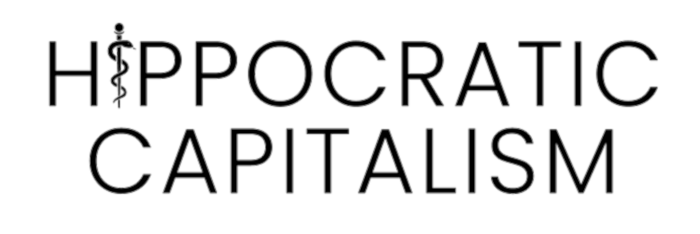The Three Meanings of "Healthcare"

What does the word “healthcare” mean? You might think the meaning is obvious, that healthcare is simply about taking care of patients and their health needs. But in fact, healthcare has three very different meanings. By mixing the three together under a single word, we’ve muddied our collective understanding, we’ve contributed to muddied national policy, and we’ve made it harder to accomplish our goals of relieving pain and suffering.
The first and most obvious definition of healthcare is physical healing, i.e. treatments for injury and illness. This definition has to do with both medical professionals and technology. As a country we care a lot about physical healing, as we should. It’s why we spend $50B/year on NIH-funded research to discover and create new therapies. It’s why we put up with high prices on drugs and devices in the expectation that the money will flow back into R&D. It’s why we set such high standards for who’s allowed to practice medicine, and what medications and devices they’re allowed to use.
The second definition of healthcare is emotional healing. Long before modern scientific medicine, physicians, shamans, and other healers played important and respected roles in society. They may not have had much in the way of technology, but they helped people make sense of their illness and suffering, and they provided compassion. While the emotional and spiritual functions of healthcare are often overshadowed by technology, their importance to patients hasn’t changed.
If the world were simple, we wouldn’t need to go any further. “Healthcare” would be limited to these first two meanings. But in the real world we also need a third category, namely the institutions that provide the various components needed for care. Hospitals, medical practices, pharmaceutical and device companies, and insurance companies, not to mention brokers and suppliers and regulators. Along with these institutions come buildings, budgets, contracts, policies, investors, and untold quantities of regulations. All of which are in principle good and useful things. But it’s possible to get so caught up in them that our definition of “healthcare” shifts to taking care of institutions rather than taking care of patients. And that’s where we lose our way.
Part of the problem is that performance in this third dimension — the business side of healthcare — is much easier to measure than performance in the first two. Not that there’s a shortage of ways to study and measure individual diseases, but there’s simply no way to roll all of the various disease measures up into one summary assessment of health improvement. Emotional and spiritual benefits are even harder to measure. Business performance, on the other hand, has the elegant property of being summarizable with a few simple numbers, such as revenue, revenue growth, and profit margin.
Another part of the problem is that in our pursuit of technological and organisational capabilities, we’ve allowed enormous vertical and horizontal integration of healthcare companies. Market power is now concentrated in the hands of a decreasing number of ever wealthier healthcare corporations. Money drives media attention and political agendas, and it’s the institutional side of medicine that has most of the money.
All of which creates a huge distortion, because healthcare is fundamentally about the first two definitions, and only about the third one to the extent that it facilitates the first two. It also drives our national sense of crisis, because it’s the business side of American healthcare that’s failing, and taking the healing side of healthcare down with it. Our technologic abilities to diagnose and cure and relieve have never been greater. Our human instincts for compassion and connection are perpetual. But our institutions are getting worse, not better, at supporting the healing functions that we expect of them.
What can be done?
Step one is turning “healthcare” from a noun into a verb. The essence of healthcare lies in the actions of physical and emotional and spiritual healing, not in the institutions. Yes, we need institutions, but we also need to judge them on the strength of their support for “verb” healthcare, rather than their self-interested needs such as revenue and profits. Accountability to patients and communities must be strengthened, and must take precedence over accountability to shareholders.
None of this is easy. But fixing the definition of healthcare is one of the most important things we can do.
